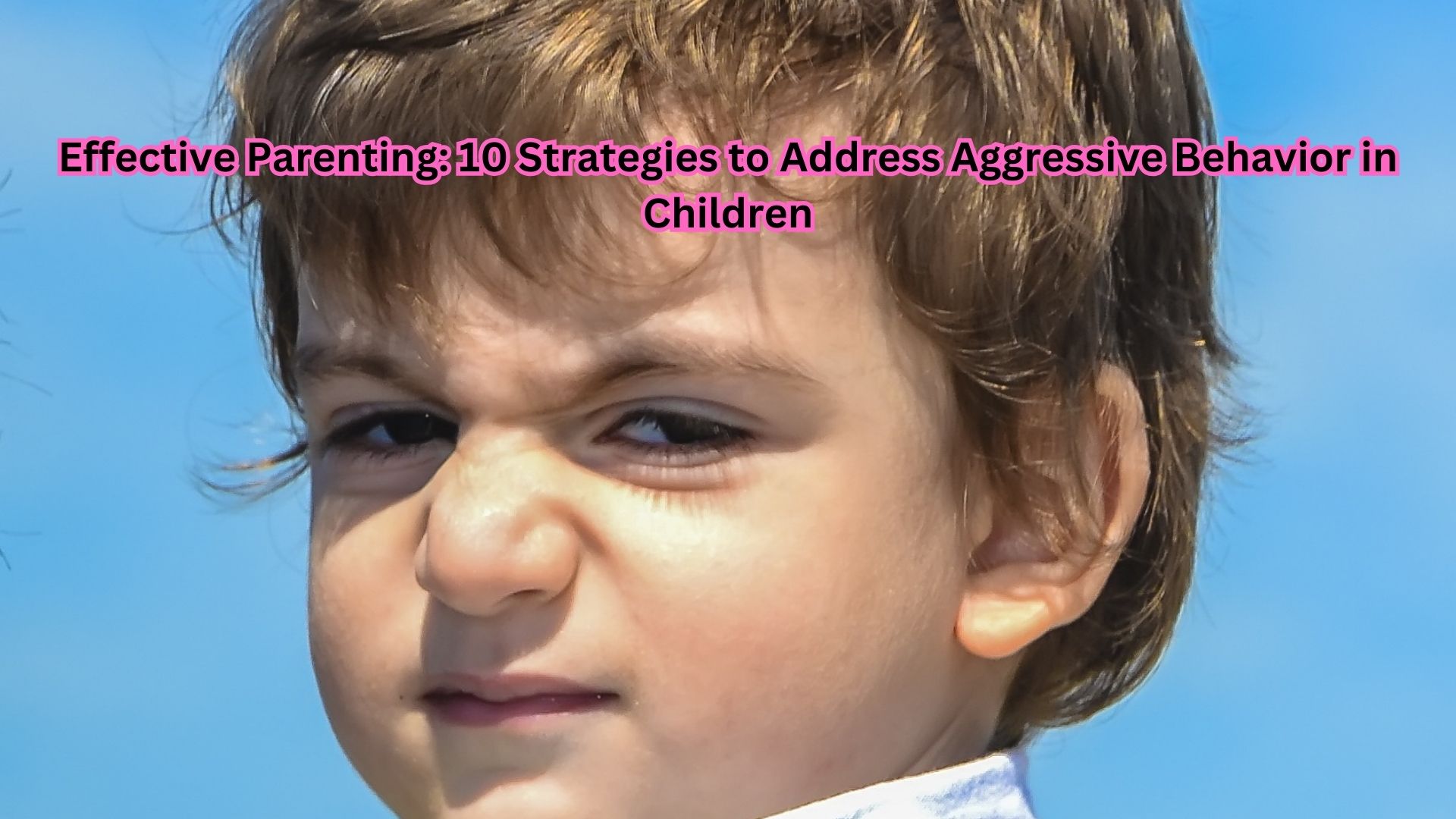
Handling aggressive behavior in children can be a substantial challenge for parents and caregivers. Nevertheless, it is imperative to address these issues early on to foster healthy emotional development and social skills. The process of dealing with aggressive behavior in children is multifaceted, demanding patience, understanding, and unwavering dedication.
By implementing the following ten strategies, parents and caregivers can assist children in developing healthier means of managing their emotions and interacting with others. Over time and with sustained effort, aggressive behavior can be gradually supplanted by more constructive and positive responses, resulting in happier and better-adjusted children.
Here are ten effective strategies to mitigate aggressive behavior in children:
- Identify Triggers: To address aggression effectively, it is vital to identify its triggers. Carefully observe your child’s behavior and endeavor to pinpoint specific situations, stressors, or emotions that provoke aggressive outbursts. This understanding will enable you to anticipate and manage these triggers more effectively.
- Encourage Open Communication: Foster an environment that encourages your child to express their feelings and frustrations openly. Create a safe and non-judgmental space where they can freely discuss their emotions. This approach can diminish the need for aggressive outbursts as a means of emotional release.
- Teach Problem-Solving Skills: Impart problem-solving skills to your child, empowering them to cope with challenging situations. Guide them in discovering constructive ways to resolve conflicts and express themselves without resorting to aggression.
- Establish Clear Boundaries: Create and uphold clear and consistent rules and boundaries within your home. Children thrive in environments characterized by structure and predictability, which can reduce anxiety and subsequently mitigate aggressive behavior.
- Utilize Positive Reinforcement: Recognize and reward your child when they exhibit non-aggressive behavior. Positive reinforcement can motivate them to continue making positive choices and effectively managing their emotions.
- Lead by Example: Children often emulate the behavior of adults. Be a positive role model by demonstrating effective conflict resolution, empathy, and communication skills in your own interactions.
- Promote Empathy: Encourage your child to develop empathy by prompting them to consider how their actions impact others. Help them grasp the emotions of others and why aggressive behavior can have emotional and physical repercussions.
- Offer Alternative Outlets: Provide your child with alternative means of channeling their emotions, such as through art, sports, or journaling. These activities can assist them in expressing their feelings in a healthier and more constructive manner.
- Consider Professional Assistance: If aggressive behavior persists or escalates despite your efforts, contemplate seeking professional help from a child psychologist or therapist. They can provide specialized strategies and interventions tailored to your child’s individual needs.
- Maintain Consistency and Patience: Transforming behavior is a gradual process, necessitating patience and unwavering consistency in your efforts. Continue reinforcing positive behaviors and offering support as your child works through their tendencies toward aggression.
By applying these strategies thoughtfully and consistently, parents and caregivers can cultivate a nurturing environment in which children learn to manage their emotions and develop healthier ways of interacting with others. Ultimately, this fosters improved well-being and happier children.
Also Read
10 Crucial Strategies for Nurturing an Entrepreneurial Mindset in Children
